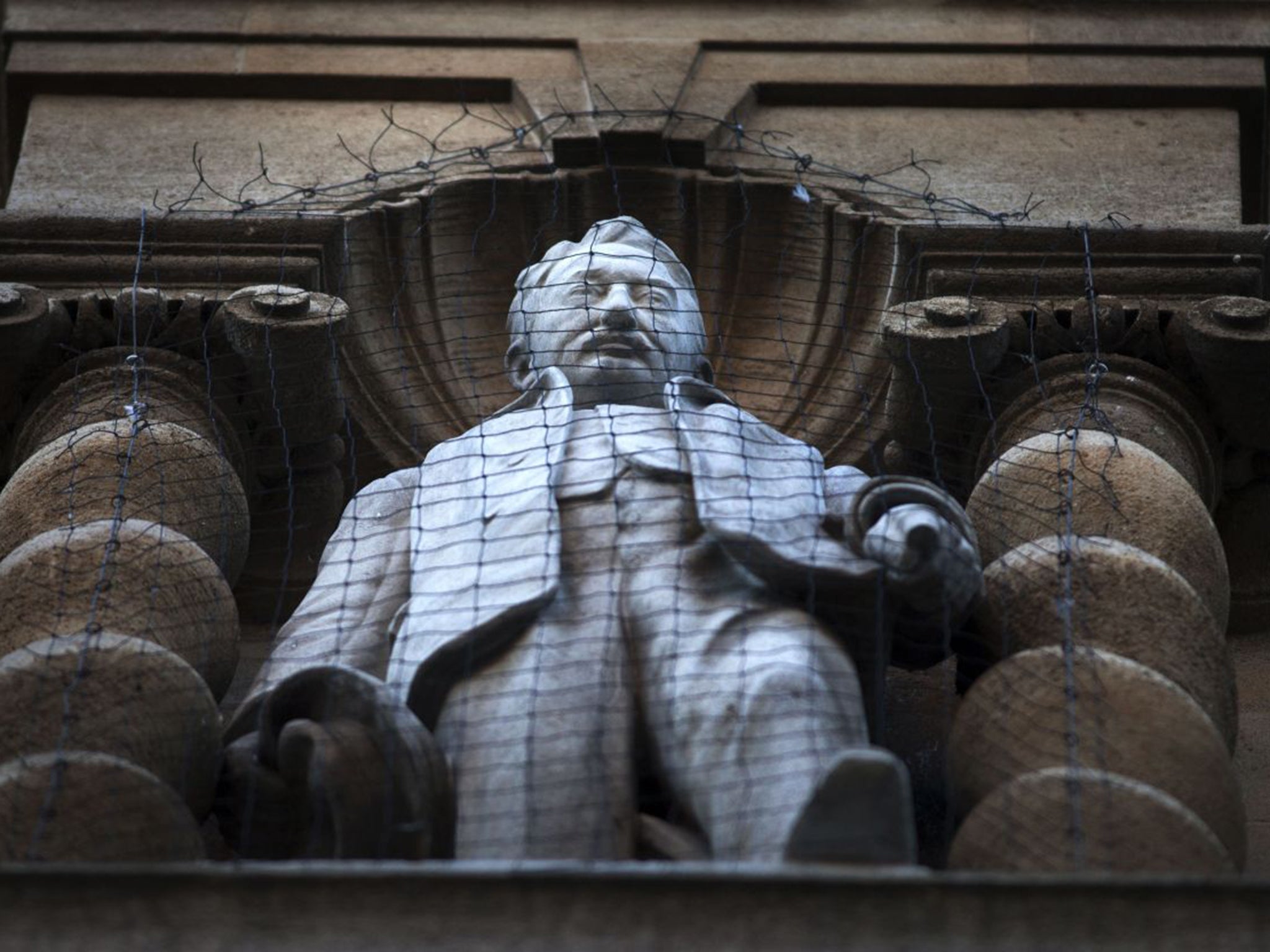Oxford University students’ Cecil Rhodes knowledge may be questioned after campaigner refers to ‘Caesar Rhodes’ in 2014 report
Report said to have been referred to frequently by protesters to accuse the university of 'institutional racism'

Your support helps us to tell the story
This election is still a dead heat, according to most polls. In a fight with such wafer-thin margins, we need reporters on the ground talking to the people Trump and Harris are courting. Your support allows us to keep sending journalists to the story.
The Independent is trusted by 27 million Americans from across the entire political spectrum every month. Unlike many other quality news outlets, we choose not to lock you out of our reporting and analysis with paywalls. But quality journalism must still be paid for.
Help us keep bring these critical stories to light. Your support makes all the difference.
A glaring error in Oxford University anti-racism literature could call into question campaigners’ knowledge on Cecil Rhodes after a student referred to the controversial 19th century colonialist as “Caesar Rhodes” several times in a report from 2014.
Quoted in 100 Voices 2: Black and minority ethnic students of Oxford speak out - headed by one of Oxford University Student Union’s (OUSU) permanent campaigns, the Campaign for Racial Awareness and Equality (CRAE) - the findings gathered statements from a university-wide survey on the forms of discrimination affecting BME students.
As well as this, since its publication, the report has reportedly been heavily referenced by campaigners in their bid to have the “racist” statue of Rhodes removed from the institution’s Oriel College building, a bid which recently failed after the college’s governing body officially ruled against its removal.
Quoted in the report, however, the unnamed respondent wrote how the institution “is often reaffirming of white or racist supremacy feelings” and described feeling “very uncomfortable” in the building under question.
The quote continues: “For instance, the African studies library is based in the Caesar Rhodes house. Caesar Rhodes was a great colonialist after whom northern and southern Rhodesia was named. He got rich of [sic] the labours of southern African mine workers under the colonial regimes that he helped to house.

“We have a whole building off of South parks road that is essentially an homage to Caesar Rhodes…when I go there, I feel very uncomfortable and under ideological assault, as though I’m made to feel like this guy did something good or deserves to be honoured with his own entire building.”
The statement goes on to highlight how the student is “glad” not to have to visit the building too often, adding: “To me, that shows a really glaring example that, at Oxford, there are institutional structures that perpetuate racial inequality and oppressive historical figures.”
As also reported by MailOnline, the site says the blunder will no doubt prove to be “an embarrassment” for those campaigners who have repeatedly used the report to accuse Oxford of “institutional racism” over its continuing choice to display the British imperialist’s statue on the building which has been in place for around 107 years.
After vigorous campaigning to have the statue removed from the building - spearheaded by the Rhodes Must Fall (RMF) in Oxford movement - Oriel College released a statement, explaining why it would not be bowing to pressure, and said: “The college will seek to provide a clear historical context to explain why it is there, and will do the same in respect of the plaque to Rhodes in King Edward Street.
“The College believes the recent debate has underlined the continuing presence of these historical artefacts is an important reminder of the complexity of history and of the legacies of colonialism still felt today. By adding context, we can help draw attention to this history, do justice to the complexity of the debate, and be true to our educational mission.”
RMF promised how its “struggle will continue” shortly after the announcement was made, and said Oriel had “breached the undertakings it gave to all students in its December statement.” RMF continued: “In December, Oriel said the plaque’s display was ‘inconsistent with’ the College’s ‘principles’. It seems Oriel no longer believes this to be the case.
“This recent move is outrageous, dishonest, and cynical. This is not over.”
Both the OUSU and CRAE have yet to respond to the Independent’s request for comment.
Join our commenting forum
Join thought-provoking conversations, follow other Independent readers and see their replies
Comments